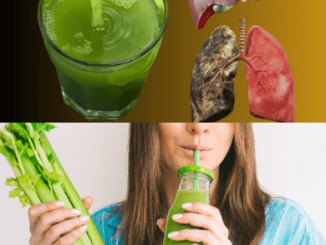Mushrooms are an essential ingredient in countless culinary creations, from hearty stews to elegant sauces and everything in between. However, whether or not to wash mushrooms before cooking them is a topic of considerable debate among chefs and home cooks alike. Let’s explore the arguments on both sides and the best practices for preparing mushrooms, ensuring that they are both clean and delectable.
The Case for Washing Mushrooms

1. Removing Dirt and Debris
Mushrooms grow close to the ground and are often harvested in environments where they can accumulate dirt, sand, and other natural debris. Washing mushrooms before cooking is a straightforward way to remove these impurities, ensuring that grit doesn’t find its way into your dishes.
2. Health and Hygiene Considerations
Beyond just dirt, mushrooms can carry other contaminants picked up during the growing or transportation process. Washing them thoroughly can help remove any unwanted residues, potentially reducing the risk of consuming harmful substances and making your meal safer and more hygienic.
3. Personal Preference and Peace of Mind
For many, the decision to wash mushrooms stems from a desire to reduce exposure to any pesticides or chemicals that might be present, even if mushrooms are typically grown in controlled environments. Washing can provide peace of mind for those who are particularly cautious about food cleanliness and safety.
The Case Against Washing Mushrooms
1. Texture and Flavor Concerns
Mushrooms are naturally porous, meaning they absorb water easily. Submerging them in water can lead them to soak up moisture like a sponge, which may result in a soggy texture after cooking. This excess moisture can dilute their rich umami flavor and alter the desired culinary outcome, especially in recipes that rely on the mushrooms’ natural earthiness.
2. Impact on Cooking Quality
One of the delights of cooking mushrooms is achieving a beautiful, golden-brown sear. However, mushrooms that have been washed and not thoroughly dried can steam rather than sauté due to the extra water content. This steaming can prevent mushrooms from browning effectively, leading to less flavorful and texturally pleasing dishes.
3. Alternatives to Washing
Many professional chefs and culinary experts recommend brushing mushrooms with a soft brush or wiping them with a damp cloth. This method targets the removal of visible dirt without saturating the mushroom with water, preserving its natural texture and flavor integrity.
Best Practices for Cleaning Mushrooms
1. Handling Button or Cremini Mushrooms

These common varieties typically arrive fairly clean and require minimal preparation. A quick brush-off with a dry paper towel or a soft brush is often sufficient to clean them without the risk of waterlogging.
2. Preparing More Delicate Varieties
Delicate or wild mushrooms, such as chanterelles or morels, often need a bit more care due to their intricate shapes and the amount of dirt they can hide. For these types, a gentle rinse might be necessary. It’s crucial, however, to dry them immediately and thoroughly with a paper towel to prevent any sogginess.
3. Timing Is Everything

If you choose to wash your mushrooms, do so right before you plan to cook them. This approach minimizes the time they have to absorb water and become waterlogged, making it easier to maintain their texture during cooking.
Conclusion
Deciding whether to wash mushrooms before cooking is ultimately a matter of personal preference influenced by the type of mushroom and the intended cooking method. If you prefer to wash your mushrooms, ensure they are dried thoroughly to preserve their texture and enhance their natural flavors. For those who opt for brushing or wiping, this method can effectively clean your fungi without compromising their integrity. Whichever method you choose, the goal remains the same: to enjoy clean, delicious mushrooms that elevate your culinary creations.


